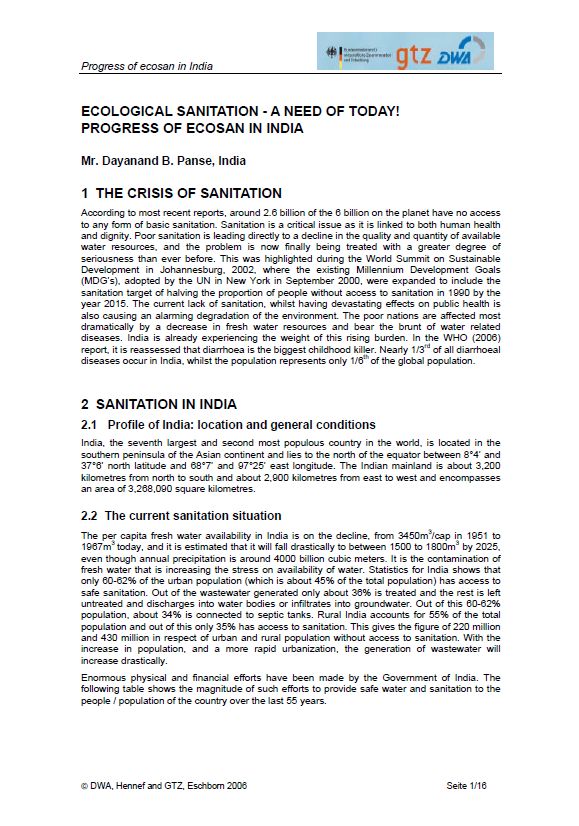
Published in: 2006
Publisher:
Deutsche Gesellschaft für Technische Zusammenarbeit (GTZ) GmbH, Germany
Author:
Panse, D. B.
Uploaded by:
SuSanA secretariat
Partner profile:
common upload
3674 Views
23 Downloads
Location of library entry
Content - Summary
According to most recent reports, around 2.6 billion of the 6 billion on the planet have no access to any form of basic sanitation. Sanitation is a critical issue as it is linked to both human health and dignity. Poor sanitation is leading directly to a decline in the quality and quantity of available water resources, and the problem is now finally being treated with a greater degree of seriousness than ever before. This was highlighted during the World Summit on Sustainable Development in Johannesburg, 2002, where the existing Millennium Development Goals
(MDG’s), adopted by the UN in New York in September 2000, were expanded to include the sanitation target of halving the proportion of people without access to sanitation in 1990 by the year 2015. The current lack of sanitation, whilst having devastating effects on public health is
also causing an alarming degradation of the environment. The poor nations are affected most dramatically by a decrease in fresh water resources and bear the brunt of water related diseases. India is already experiencing the weight of this rising burden. In the WHO (2006)report, it is reassessed that diarrhoea is the biggest childhood killer. Nearly 1/3rd of all diarrhoeal diseases occur in India, whilst the population represents only 1/6th of the global population.
Bibliographic information
Panse, D. B. (2006). Ecological sanitation - a need of today! - Progress of ecosan in India. Deutsche Gesellschaft für Technische Zusammenarbeit (GTZ) GmbH, Germany
Filter tags
East Asia & Pacific English















